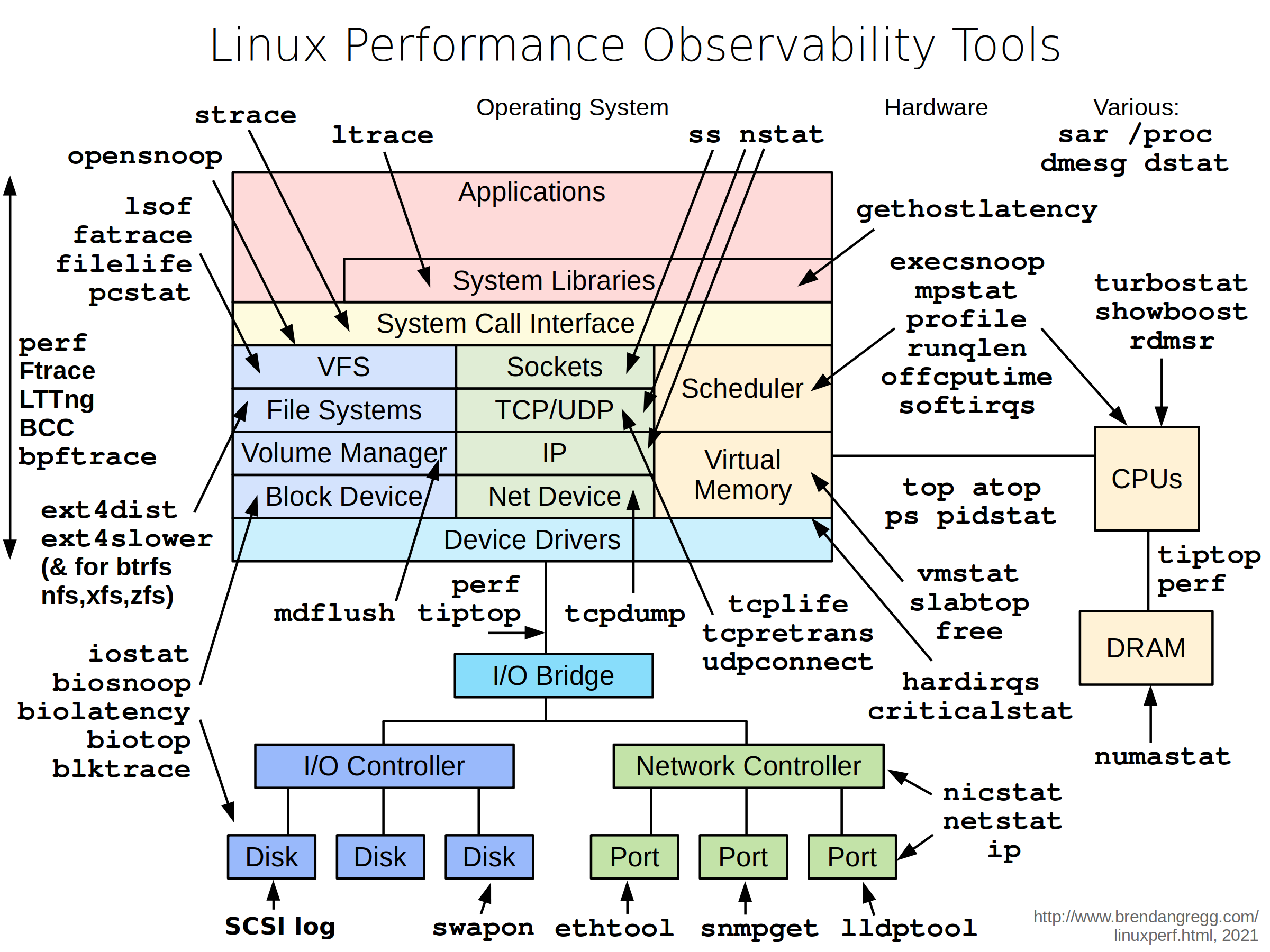My debugging toolbox: strace
From time to time, my usual debugging tools: good ol printf, logger.log, console.log, gdb, pdb are not enough to solve the problem. This happens more than often when multiple processes/threads are involved or performance is an issue.
One such tool that I found really useful is strace.

See man strace (great read)!.
TL;DR
- Traces all syscalls (aka how your program interacts with os)
- It’s like
printfbut it automatically prints everything being read/written to any file descriptor (file, socket etc.) - Can show execution stack trace after each system call (flag
-k) - and follow forks! (with
-f) - Automatically decodes pids / file descriptors (flags
--decode-pids=comm/--decode-fds=all) - Each line follows:
callname(**args) = result1 - Slows down traced program 2, sometimes ~ 100 times
To showcase these features, I’ve created a toy program. I’m going to show you how to discover what’s it doing.
Debugging missing config files
Some programs are not very verbose. This one complains that it cannot open a file, but it doesn’t specify which one.
$ ./demo
Cannot open file.
Running strace ./demo will print all the relevant output. You can filter it by adding -eread,write,open,openat,writev (common syscalls).
$ strace -eread,write,open,openat,writev ./demo
openat(AT_FDCWD, "example.txt", O_RDONLY) = -1 ENOENT (No such file or directory)
write(1, "Cannot open file.\n", 18Cannot open file.
Program tries to open file example.txt but it doesn’t exist!
Debugging running program
Lets run the demo in background:
$ ./demo &
[1] 104794
And connect to it with strace (-p [PID]):
$ strace -eread,write,open,openat,writev -p 104794
strace: Process 104794 attached
writev(3, [{iov_base="2137\n2137\n2137\n2137\n2137\n2137\n21"..., iov_len=8190}, {iov_base="2137\n", iov_len=5}], 2) = 8195
So our program is writing 2137\n to file descriptor 3. What file is it? Use --decode-fds=all! And bam it’s writing to file: demo.txt
$ strace -eread,write,open,openat,writev --decode-fds=all -p 104794
strace: Process 104794 attached
writev(3</home/pk/projects/strace/demo.txt>, [{iov_base="2137\n2137\n2137\n2137\n2137\n2137\n21"..., iov_len=8190}, {iov_base="2137\n", iov_len=5}], 2) = 8195
If our binary has debug symbols you can event print preety stack traces with -k:
strace -eread,write,open,openat,writev -p 104794 -k
strace: Process 104794 attached
writev(3, [{iov_base="2137\n2137\n2137\n2137\n2137\n2137\n21"..., iov_len=8190}, {iov_base="2137\n", iov_len=5}], 2) = 8195
> /usr/lib/x86_64-linux-gnu/libc.so.6(writev+0x17) [0x11aa57]
...
> /home/pk/projects/strace/demo(waitDemo()+0x85) [0x138e]
> /home/pk/projects/strace/demo(main+0x12) [0x149e]
> /usr/lib/x86_64-linux-gnu/libc.so.6(__libc_init_first+0x90) [0x29d90]
> /usr/lib/x86_64-linux-gnu/libc.so.6(__libc_start_main+0x80) [0x29e40]
> /home/pk/projects/strace/demo(_start+0x25) [0x1245]
Example traced program
This program was used to showcase neat features of strace.
#include <iostream>
#include <fstream>
#include <unistd.h>
using namespace std;
void waitDemo() {
ofstream file;
file.open("./demo.txt");
if (!file.is_open()) {
exit(1);
}
while(true) {
file << "2137\n";
usleep(1000);
}
}
void openFileDemo() {
ifstream file;
file.open ("example.txt");
if (!file.is_open()) {
cout << "Cannot open file.\n";
exit(78);
}
}
int main () {
openFileDemo();
waitDemo();
return 0;
};
Compile with:
g++ main.cpp -g -o demo